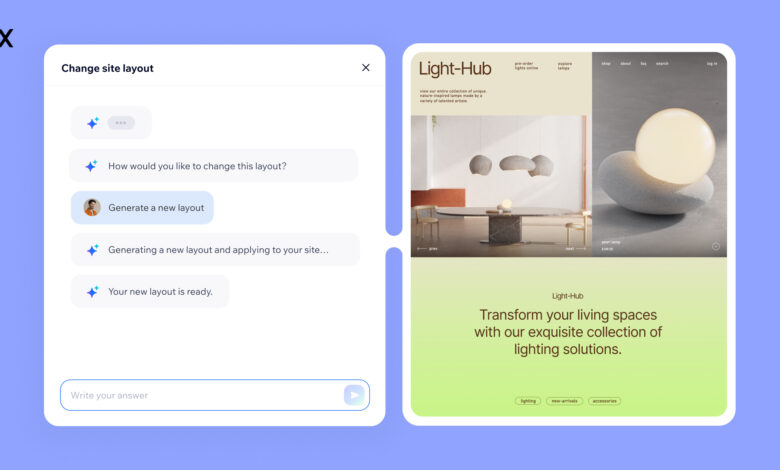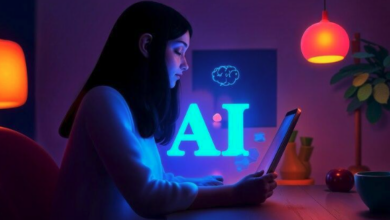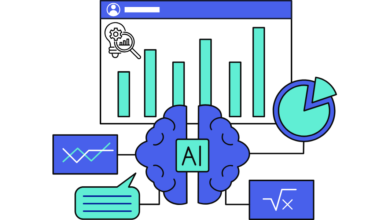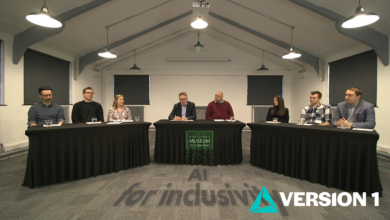
The AI revolution swept the world in 2023 but AI has been around for quite some time. AI is practically instanced by models that capture intelligence. Previously, these models could only be developed by the data scientists of a company. Now, for the first time, AI is available for nearly everyone as a true and valuable service.
With the advent of the so-called Foundation Models, in general, and Large Language Models (LLMs), in particular, any engineer can directly access these models via APIs and very quickly develop AI-based applications. With these new advancements, AI will become as common as cell phones.
Today there are more cell phones on Earth than humans – the same will be true with AI models.
It will be more and more specific and tailored for each user, and eventually, there will be more AI models than human beings. It will be a trivial part of our life, either as a personal assistant or as an enabler for industrial use for all walks of life. AI assistants will be the future way humans will interact with products.
Conversational AI agents are going to be everywhere and a go-to tool for businesses. AI assistants will streamline and automate processes, ultimately, reducing friction and creating greater efficiency. This is playing out in real life in various ways. AI chatbots are changing the way customer service is managed. AI agents can help write stories, texts, messages, or programming code.
AI chatbots can be a virtual tutor in almost any subject. These agents will be able to assist a customer with shopping online, whether it’s assisting in showing the customer items they are searching for, providing personalized recommendations, simplifying the payment process, helping with the delivery process, or enabling AI-based virtual fitting rooms that feel like physically trying on the product.
The AI community and industry have been working towards accomplishing this for years, but with the recent technology of Generative AI, such complex problems are getting closer to being solved and made into realities. The same developments are happening for the traditional developer workflow. While acting in their role as AI Users, developers can harness AI as a personal assistant, enabling them to do the same tasks faster and more accurately – leading to a revolutionized development process.
AI is also changing the web creation industry. AI technologies present web creation with even greater opportunities to address challenges that were previously difficult to overcome and support users. The technology enables us to reduce friction in various areas, expanding the value we offer through our platform. AI technologies help streamline the website creation process, enhance efficiency, and improve the overall quality of websites built.
For example, creating content often poses a challenge for users when building their websites. AI text creation tools help users, many of whom aren’t professional writers or have the resources to hire a professional copywriter, write engaging and professional content in just a few clicks.
The same goes for AI image creation which allows users to describe their vision of an image and AI generates it for them, eliminating a user’s frustration when trying to design an image without a designer-eye. AI now assists with SEO, marketing automation, and other tools to help make websites and businesses more successful.
AI assistants in web creation can help users create entire websites. Once the infrastructure is developed behind the scenes, AI is the bridge between this infrastructure and the user who wants to use this infrastructure for their purposes.
For example, building an online store involves a whole complex infrastructure, like adding products to the catalog, connecting payment providers, security, design, etc. AI can assist in this process to make it happen faster and easier by letting the user instruct the system using natural language to do the heavy lifting. Users can describe their intent and goals to an AI assistant and it will do the work of creating an entire site within minutes. AI assistants can also help edit and change parts of websites – texts, images, layouts, etc. They will truly represent a “right-hand” assistant throughout the whole process.
There’s a social challenge that AI could replace humans. Everyone is afraid of losing their jobs to AI and at some capacity, in specific tasks, some of us might – but in general, AI’s purpose is to serve more as assistants than replacements. It’s an understandable fear. With AI, we can achieve significantly more with the same workforce, enhancing efficiency without causing mass redundancies. It’s about pushing the boundaries of our capabilities in a world that constantly seeks growth. The world of Generative AI is moving towards micro-specialization so it’s not an end-all-be-all solution.
AI isn’t flawless. There are these things called hallucinations (misleading results generated by AI). It’s caused by a variety of reasons. AI is based on an average of all the knowledge it contains and it’s trained to predict the next most probable word out of this knowledge – it doesn’t know whether the information is reliable, serious, or trustworthy. Some of the information may have been posted by anonymous online commentators. It isn’t bullet-proof fact-checked information.
That’s what causes these hallucinations. Another reason for hallucinations is that sometimes there just isn’t enough information, and the LLM isn’t programmed to say “I don’t know” so it spits out the best it can. So obviously there’s an inherent problem of trustful knowledge. At the end of the day, these machines aren’t as smart as we think they are; they’re only as smart as they’ve been fed. They can give many good reliable answers, but if one of every ten answers is a hallucination, it becomes risky to trust it completely.
We’re still at an early phase of this Big Bang. Trying to envision what AI will look like several years ahead is extremely challenging. AI has been made accessible to the whole world. Once we reach the point of AGI (Artificial General Intelligence) with true human-like reasoning capabilities, everything will change – not only our industry, but all of society and humanity is going to be completely disrupted. AI could be super-human. Real intelligence is beyond knowledge and that’s the promise of Artificial Intelligence. Now, how does one predict something they’ve never seen before? Real intelligence is needed for that. Predicting something that is out of the distribution – now that’s a real challenge.
GenAI is shaking the ground and truly gives new functionalities to everyone. However, if companies didn’t invest in AI before this dramatic point in time, they’ll soon face the fact that it will take them some time to execute a true change using AI within their products. Industries around the world, including Wix, are currently reaping the fruits of the AI seeds planted many years ago. The current AI revolution is just beginning to unleash AI’s true potential. AI reduces complexity and creates value for users, and over the next few years, new AI technologies will bring many opportunities, including improving web creation.




